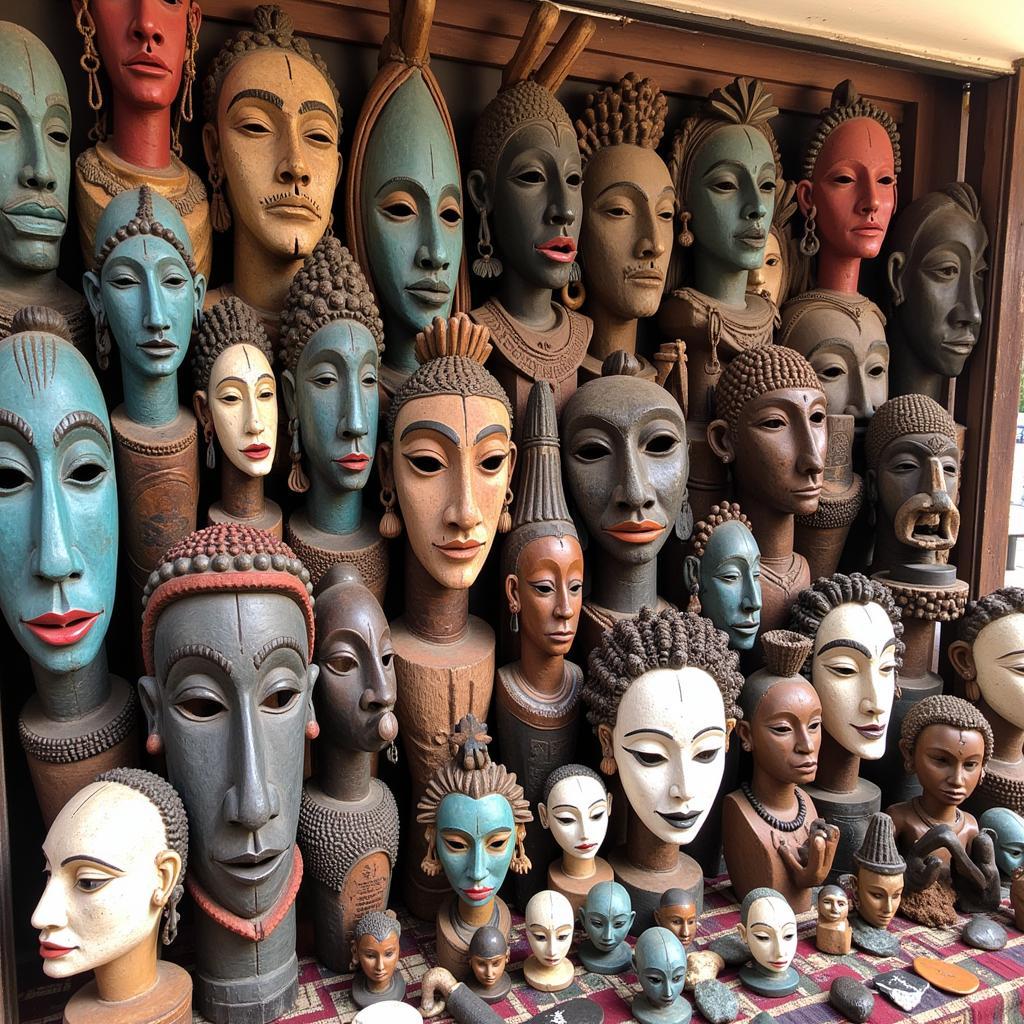Exploring the Depths of African Cosmology
African Cosmology is a rich and complex tapestry woven from the threads of diverse cultures and traditions across the continent. It encompasses a vast array of beliefs, myths, and rituals that seek to explain the origin of the universe, the nature of existence, and humanity’s place within the cosmic order. From the ancient Egyptians’ intricate understanding of the afterlife to the Yoruba reverence for Orishas, African cosmology offers a profound insight into the spiritual and philosophical foundations of African societies. Exploring this topic reveals a world of interconnectedness between the physical and spiritual realms, highlighting the deep respect for ancestors, the power of oral traditions, and the profound impact of nature on shaping African worldviews.
The intricate systems of belief found within African cosmology extend beyond simple creation narratives. They delve into the moral and ethical principles that govern human behavior, the dynamics of social structures, and the delicate balance between humans and the natural world. What makes African cosmology particularly captivating is its inherent dynamism. Rather than being a static set of doctrines, it continues to evolve and adapt, reflecting the ongoing dialogue between tradition and modernity, and the ever-changing relationship between African communities and their environment.
Understanding Key Concepts in African Cosmology
A central theme in African cosmology is the concept of a Supreme Being, often seen as the creator and sustainer of the universe. This being is sometimes conceived as a distant, unknowable force, while in other traditions, it is a more active presence in the world. Ancestor veneration is another fundamental aspect. Ancestors are believed to act as intermediaries between the living and the spiritual world, offering guidance and protection to their descendants. They are revered and consulted on important matters, ensuring a continuity between past, present, and future generations. The concept of balance and harmony is also crucial. Many African cosmologies emphasize the interconnectedness of all things and the importance of maintaining equilibrium within the natural and social order. This interconnectedness extends to the realm of spirits and deities, which are often associated with natural elements like water, fire, and earth.
What sets African cosmology apart is its emphasis on oral traditions. Stories, proverbs, and rituals are the primary vehicles for transmitting knowledge and beliefs across generations. These oral traditions not only preserve cultural memory but also provide a framework for understanding the complex relationship between humans and the cosmos. African dream root (african dream root) plays a significant role in some traditions connecting individuals to the spiritual realm through dreams and visions.
How is African Cosmology Different from Western Cosmologies?
While Western cosmologies often emphasize a linear view of time and a separation between the spiritual and physical realms, African cosmology tends to embrace a cyclical understanding of time and a more fluid relationship between the seen and unseen. In many African traditions, the past, present, and future are interconnected, and the world of spirits is an integral part of everyday life. This distinction leads to a different approach to understanding the universe and humanity’s role within it. Whereas Western science often seeks to explain the universe through empirical observation and experimentation, African cosmology relies on intuition, experience, and the wisdom of ancestors to gain insight into the mysteries of existence. It’s important to remember the incredible diversity within African cosmological systems themselves. Generalizations can be misleading, as each culture possesses its own unique interpretation and expression of these fundamental principles.
For a more detailed understanding of African astrology, take a look at this article: african astrology 2019.
What is the Role of Rituals in African Cosmology?
Rituals play a vital role in African cosmology, serving as a bridge between the human and spiritual worlds. They are not merely symbolic acts but rather transformative experiences that connect individuals to the power of the cosmos. Rituals mark important life events, such as birth, death, marriage, and harvest, and they also provide a framework for addressing challenges, seeking guidance, and maintaining balance within the community. These rituals often involve music, dance, storytelling, and offerings to ancestors and deities. They reinforce social bonds, transmit cultural values, and provide a sense of continuity across generations.
The Continued Relevance of African Cosmology
African cosmology continues to hold deep significance for millions of people across the continent and the diaspora. It provides a framework for understanding the world, navigating life’s challenges, and connecting with one’s cultural heritage. In a world increasingly dominated by scientific and technological advancements, African cosmology offers a different perspective, reminding us of the importance of spirituality, community, and the interconnectedness of all things. By exploring the depths of African cosmology, we can gain a deeper appreciation for the rich diversity of human thought and the enduring power of tradition. This article is not just about ancient beliefs; it’s about understanding a living, breathing worldview that continues to shape the lives of millions.
Dr. Abena Osei, a renowned anthropologist specializing in African cultures, states, “African cosmology provides a powerful lens through which to understand the complex relationship between humans and the cosmos. It is a dynamic system of knowledge that continues to evolve and adapt to the changing world.” This resonates deeply with the observation that cosmology in Africa isn’t a static entity, but rather a dynamic force shaping and being shaped by the communities that hold it dear.
Professor Kwame Asante, a respected scholar of African philosophy, adds, “The emphasis on oral traditions in African cosmology ensures the continuity of cultural knowledge and values across generations. It is a powerful testament to the resilience and adaptability of African cultures.” These words highlight the enduring power of storytelling and its central role in preserving and transmitting the intricate tapestry of African cosmology.
Conclusion
African cosmology offers a profound and nuanced understanding of the universe and humanity’s place within it. From the reverence for ancestors to the intricate rituals that connect the physical and spiritual realms, African cosmology provides a rich tapestry of beliefs and traditions that continue to resonate with millions across the globe. By exploring its depths, we can gain valuable insights into the diverse cultural landscape of Africa and the enduring power of its spiritual traditions. This journey into African cosmology isn’t just a glimpse into the past; it’s an opportunity to connect with a vibrant worldview that continues to shape the present and future. Check out the predictions for african astrology accurate predictions. You might also be interested in exploring african god murugu for further insights into specific deities. As you explore African cosmology, remember the importance of approaching this vast and diverse field with respect and an open mind.
FAQ
-
What is the core concept of African cosmology?
A central concept is the interconnectedness of all things, including the physical and spiritual realms. -
How is time perceived in African cosmology?
Time is often viewed cyclically, with the past, present, and future interwoven. -
What is the role of ancestors in African cosmology?
Ancestors are revered as intermediaries between the living and the spiritual world. -
How is knowledge transmitted in African cosmology?
Oral traditions, including stories, proverbs, and rituals, are the primary means of transmitting knowledge. -
Why is African cosmology still relevant today?
It provides a framework for understanding the world and connecting with cultural heritage. -
What is the significance of rituals in African cosmology?
Rituals serve as transformative experiences, connecting individuals to the power of the cosmos. -
How does African cosmology view the relationship between humans and nature?
It emphasizes the interdependence and balance between humans and the natural world.
Further Questions to Explore
- How have colonialism and globalization impacted traditional African cosmologies?
- What are some of the ethical and moral implications of African cosmological beliefs?
- How do different African cultures interpret the concept of a Supreme Being?
Need help? Contact us at Phone: +255768904061, Email: kaka.mag@gmail.com or visit us at Mbarali DC Mawindi, Kangaga, Tanzania. We have a 24/7 customer support team.



